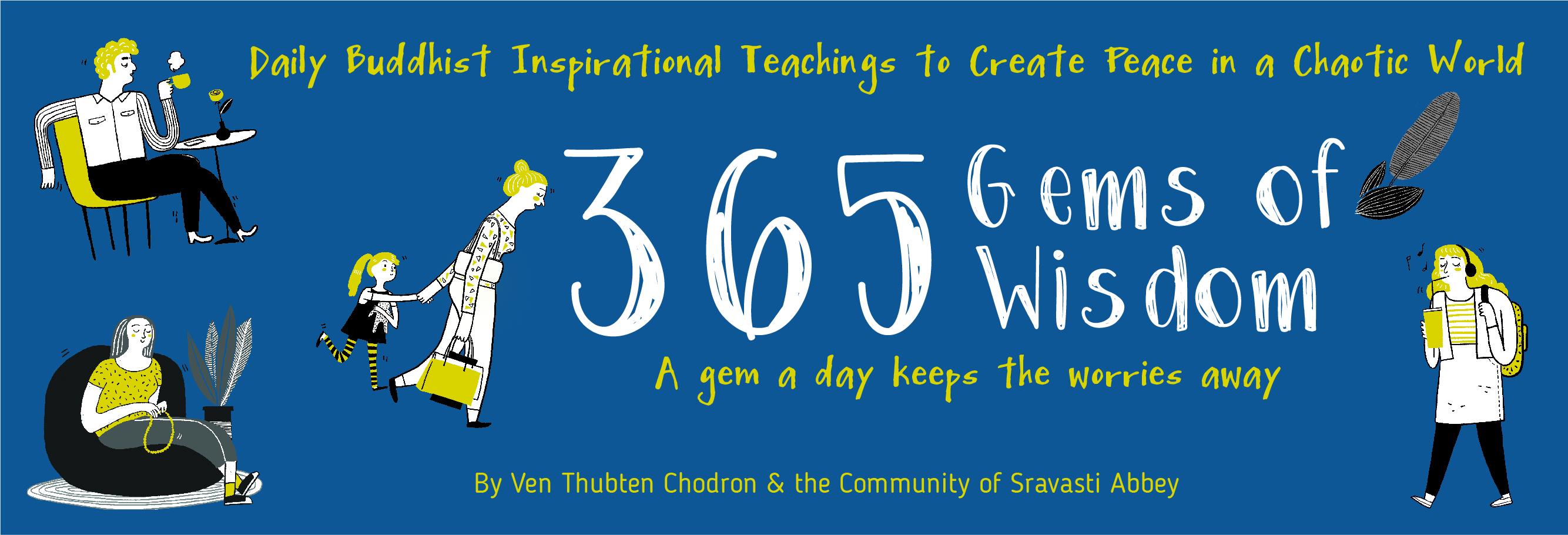January 20 : Working with the Yo-yo Mind
Attached to your loved ones you are stirred up like water. Hating your enemies, you burn like fire. In the darkness of confusion, you forget what to adopt and discard. Give up your homeland. This is the practice of Bodhisattvas.
In one part of our lives, we are attached to our friends and family. We want to be with certain people and do not want to be separated from them because we think they are going to make us everlastingly happy. We miss them when we are not with them and long to be with them. When we are with them, we do not want anything to change. When there is attachment, the mind gets completely stirred up like the ocean and waves, and the mind is not peaceful because of the clinging, wanting, and craving that are present.
Another part of our lives is hating the people who do not give us what we want, do not respect us, do not approve of us, hinder us and get in our way of the pursuit of our desires, criticise us, forget our birthdays, gossip and say bad things about us behind our backs, or hit us and harm those we are attached to. We are vengeful and spiteful towards them and just want to quarrel or bash them up either verbally, physically, or mentally. This is why Lama Yeshe said our mind is like a yo-yo — when there is someone we are attached to, we are up, and when there is somebody we cannot stand, we are down.
If we are not involved in those two, we are usually just spaced out and apathetic. We do not care about anything that does not influence us and we go through our day in automatic mode. The result is that we forget what to adopt and what to discard. Adopting refers to things we want to practise, like precepts, training in bodhicitta, and understanding the Four Noble Truths. Discarding refers to the ten non-virtues, negative thoughts, and all the afflicted mental states. We are usually very confused ethically and have thoughts such as, “It’s okay to tell this lie because it’s for the benefit of all sentient beings,” or “Being kind to this person is not a good idea because he may hurt me later.” This confusion is what it means to be in samsara, and we are all quite similar. There are slight versions of the 30 | January same theme, but these three — attachment, aversion, and indifference — pretty much run our lives.
The antidote is not necessarily heading for the nearest cave, but remodelling our internal, mental homeland — all the thoughts, habits, and conditioning we received as kids. As adults, we should go back and review everything we have learnt and throw out whatever encourages attachment or aversion. Sometimes it is very helpful to leave the place where we grew up or are living as adults, especially our expected social roles which keep us mentally imprisoned or are antithetical to our Dharma practice. Keeping some distance helps us to build up wisdom and internal antidotes, so we will not fall back into our old habits and go completely bonkers with attachment or anger if we encounter these situations again.
“365 Gems of Wisdom” First Volume (January — March) e-book is out now!

